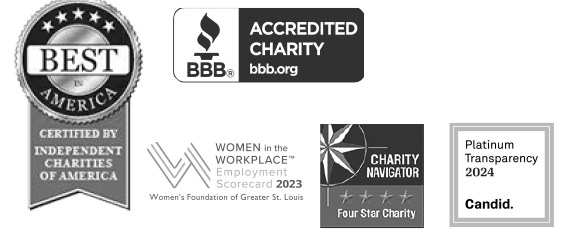As long ago as 400 BC, Hippocrates declared, “Let food be thy medicine and medicine be thy food.” For millennia, indigenous communities and various cultures have identified the vital connection between food and health. However, Western medical approaches often perpetuate siloed treatment interventions that fail to incorporate food access into chronic illness management.
What is Food is Medicine?
Massachusetts Food is Medicine State Plan (MFMSP), a leading innovative report developed by the Center for Health Law and Policy Innovation at Harvard Law School and Community Servings, defines Food is Medicine (FIM) as ‘a spectrum of services and health interventions that recognize and respond to the critical link between nutrition and chronic disease.’ Additionally, they identify Food is Medicine interventions as ‘healthy foods that are tailored to meet the specific needs of individuals living with or at risk for serious health conditions affected by diet.’ FIM is a growing movement in the United States and has seen legislative and academic advancement within the last five years. Unfortunately, a lack of standardization and program access has stalled potential community-based organizations and health care partnerships that might propel FIM initiatives.
Food is Medicine interventions have targeted disease management for diabetes, HIV, cancer, heart disease and cystic fibrosis, among other chronic health conditions. Medically tailored meals are one of the most widely available FIM interventions. The MFMSP defines Medically tailored meals (MTMs) as “designed by a Registered Dietitian Nutritionist based on a nutritional assessment…meals address the recipient’s medical diagnosis or diagnoses with the goal of ensuring the best possible health outcomes. Typically, meals are prepared, and home delivered’. Medically Tailored Meals research across numerous chronic health conditions has shown that patients receiving MTMs have fewer inpatient admissions, experience decreased depressive symptoms and lower overall health care costs.
How does FIM impact health equity and outcomes?
The World Health Organization (WHO) includes food insecurity in the list of social determinants of health (SDOH), the ‘nonmedical factors that influence health outcomes.’ These factors can affect health outcomes more than quality of health care or lifestyle choices. In fact, research from WHO indicates that social determinants of health can account for up to 55% of health outcomes.
Additionally, SDOH aren’t felt equally across all communities in the United States. Communities that have experienced historic and systemic marginalization feel the burden of health inequity the most. Health inequity impacts non-Hispanic Black individuals the most, leading to the shortest life expectancy of any racial group and twice the infant mortality rate of white Americans. According to the Missouri Department of Health and Senior Services, Black Missourians are more likely to experience preventable hospitalizations and die from hypertension, heart disease, diabetes, cancer and stroke. Income inequality also contributes to negative health outcomes, with low-income adults five times more likely than those above 400% of the poverty level to report being in poor health. A recent landmark study suggested that men in the top 1% of income brackets in the U.S. will live fifteen years longer than those in the bottom 1%.
Health doesn’t exist in a vacuum. Social factors, like systemic and intentional removal of food access from Black, Indigenous and other communities of color (referred to as food apartheid), along with “redlining,” a practice that excludes certain communities from housing access and resources, perpetuate health inequities for Missourians. While Food is Medicine doesn’t directly address the need to acknowledge the harm, it can begin to address some of the underlying factors that contribute to grievous health disparities.
Medical practitioners and health scholars have identified a need to connect the teaching of social determinants of health more explicitly to systemic and structural oppression in medical settings. Practitioners involved in The Praxis Project, a social justice organization focused on health equity, suggest an emphasis on identifying social determinants of health as ‘conditions to be challenged and changed’ rather than ‘facts to be known.’ It is racism, not race, that generates disparate health outcomes for Black, Indigenous and other People of Color in Missouri. Food is Medicine’s theoretical approach encourages advocacy and policy opportunities to address inequity rather than accepting health disparities as unchangeable.
What is the future for food insecurity and health care integration?
Advocates must have a foundation in social determinants of health, and a framework that amplifies health inequities, to communicate the urgent need to address social factors within health settings. While social determinants identify many factors not controllable in a clinical setting, food insecurity can and should be appropriately addressed within a health care setting. The impact of food and nutrition on many chronic health conditions illustrates the medical case for intervention within health care settings. The foundational concept of Food is Medicine further emphasizes the inextricable link between food and health and makes the case for food being a reimbursable health care expense.
While Food is Medicine principles and interventions are promising new ways to address social determinants of health, they should be combined with other medical interventions in chronic disease management. Often, if not almost always, food and nutrition services cannot ‘cure’ a chronic disease. However, integrating nutrition services and food insecurity interventions into health care settings can address a patient’s needs more appropriately and create more equitable health outcomes.
Want to learn more about Operation Food Search’s Food is Medicine initiatives? Check out our FreshRx programs, Nourishing Healthy Starts and Prescribing Healthy Futures.
Written by Cate Hensley, Coordinator of Community Engagement & Advocacy at Operation Food Search



